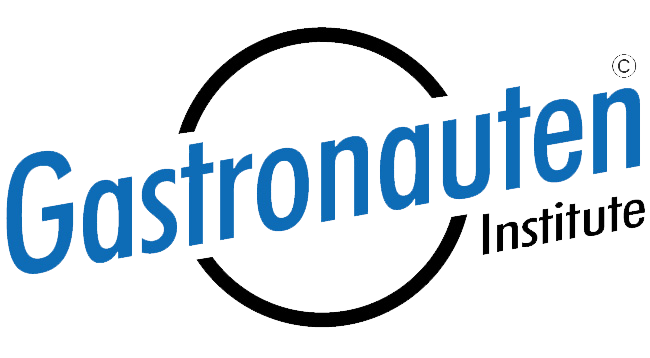A new report on environmental dumping, released in advance of World Refrigeration Day, finds that 35% of the room air conditioners (RACs) sold in many of Africa’s largest countries are low efficiency units with energy efficiency ratings of less than 3.0 W/W, a commonly adopted standard around the world. “Environmentally Harmful Dumping of Inefficient and Obsolete Air Conditioners in Africa” details the extent of the problem across ten countries in North, West, East, and Southern Africa, ultimately providing policymakers with a set of solutions to encourage a transition toward highly-efficient, sustainable cooling technologies. CLASP researched and wrote the report in collaboration with the Institute for Governance & Sustainable Development.
Analysis of ten countries (Algeria, Egypt, Morocco, Tunisia, Ghana, Nigeria, Ethiopia, Kenya, Tanzania, and South Africa) that account for 96% of the continent’s RAC market reveals that:
- 650,000 units are being sold annually in African countries that do not meet common efficiency standards above 3.0 W/W, though major AC and AC component manufacturing countries—including China, Japan, South Korea, and the United States—maintain standards well above 3.0 W/W.
- One-quarter of the low-efficiency RACs containing obsolete refrigerants were imported from non-African companies.
- Three-quarters were assembled in Africa by one of three company types: local subsidiaries of non-African companies, joint ventures between smaller African assemblers and large, non-African RAC, or wholly independent African RAC assemblers, not part of a joint venture, importing components for and assembling low-efficiency RACs.
From 2005 to 2019, Africa’s market for new split room air conditioners (RACs) grew by an estimated 14%, cumulatively. Weak or non-existent energy efficiency policies and the lack of proactive anti-environmental dumping policies in many African countries have facilitated environmentally harmful dumping of inefficient, high-global warming potential (GWP) air conditioner products into African markets.
The Montreal Protocol, designed to phase out numerous ozone-depleting substances, was amended in 2016 to include the phase-down of substances that trap heat in the atmosphere and exacerbate global warming. As manufacturing and industrialized economies place increasingly stringent energy performance standards on RACs sold domestically and implement refrigerant transition policies, importing African countries risk becoming even greater dumping grounds for inefficient, environmentally harmful products using obsolete refrigerants that no longer have a viable domestic market in their places of origin and soon worldwide.
“With energy demand growing across the continent, addressing environmental dumping issues would not only help countries achieve progress on their climate action goals, but would also help to ensure that African consumers gain access to affordable, high-quality appliances,” said Rebecca Schloemann, the lead author from CLASP.
“Inefficient ACs are being dumped into Africa where they are ‘energy vampires,’ sucking up vital energy needed to recover from the pandemic and economic slowdown. Stopping environmental dumping and switching markets to efficient and climate-friendly cooling is essential in a warming world where heat and humidity extremes may soon exceed levels suitable for human survival,” said Tad Ferris, Senior Counsel for the Institute for Governance & Sustainable Development, and a lead author of the paper defining environmentally harmful product dumping.
The prevalence of low-efficiency RACs puts extra strain on governments’ and consumers’ budgets. Customers pay higher electricity bills and countries pay more for electricity generation facilities, imported fuel, and electricity transmission and distribution infrastructure. Further, environmental dumping of air conditioning products with obsolete refrigerants increases future demand for these damaging refrigerants at a time when they will be expensive or unavailable in some markets, creating incentive for illegal chemical manufacture and trade.
The report outlines a series of recommendations for policymakers to halt environmental dumping and encourage a transition to highly-efficiency, low-GWP RACs, modeling the potential impact of policy scenarios that could reduce 2022-2030 greenhouse gas emissions by 14-20% from current levels:
- Ratify the Kigali Amendment to the Montreal Protocol and adopt implementing policies.
- Design and implement energy efficiency policies consistent with major countries of export.
- Strengthen institutional arrangements.
- Revise tariffs on RACs to ensure compatibility with energy efficiency goals.
- Ban the import of secondhand, including refurbished, and inefficient RACs and publicize and enforce the ban.
- Implement government bulk purchasing and support for buyers’ clubs.
- Properly recycle and dispose of obsolete room ACs.
- Elevate solutions to regional level.
- Engage local groups profiting under current system to trade in obsolete equipment as part of the solution.
Overall, the report addresses obstacles and paths to environmentally sustainable cooling technologies which are essential to thermal comfort, productivity, and quality of life.
Webinar
CLASP and IGSD will host a webinar on 1 July, 10 am EDT to present the findings of the report. Pre-registration is necessary for this event. Register here.
| Agenda | Speaker | Time |
| Introduction | Gabrielle Dreyfus, IGSD | 10 minutes |
| Presentation of Report | Rebecca Schloemann, CLASP | 30 minutes |
| Q&A | All Speakers | 20 minutes |
“Environmentally Harmful Dumping of Inefficient and Obsolete Air Conditioners in Africa” is available here. For media inquiries, please contact Rebecca Schloemann at rschloemann@clasp.ngo
or Gabrielle Dreyfus at gdreyfus@igsd.org.


6 Comments
Riva Collins
It’s no secret that the digital industry is booming. From exciting startups to need ghor
global and brands, companies are reaching out.
Riva Collins
It’s no secret that the digital industry is booming. From exciting startups to need ghor
global and brands, companies are reaching out.
Obila Doe
It’s no secret that the digital industry is booming. From exciting startups to need ghor hmiu
global and brands, companies are reaching out.
Riva Collins
It’s no secret that the digital industry is booming. From exciting startups to need ghor hmiu global and brands, companies are reaching out.
Obila Doe
It’s no secret that the digital industry is booming. From exciting startups to need ghor hmiu
global and brands, companies are reaching out.
Riva Collins
It’s no secret that the digital industry is booming. From exciting startups to need ghor hmiu global and brands, companies are reaching out.